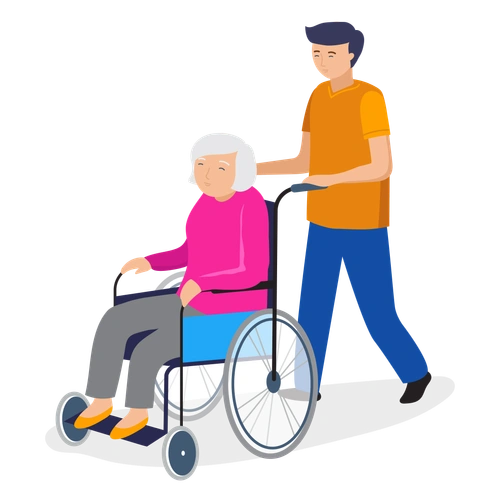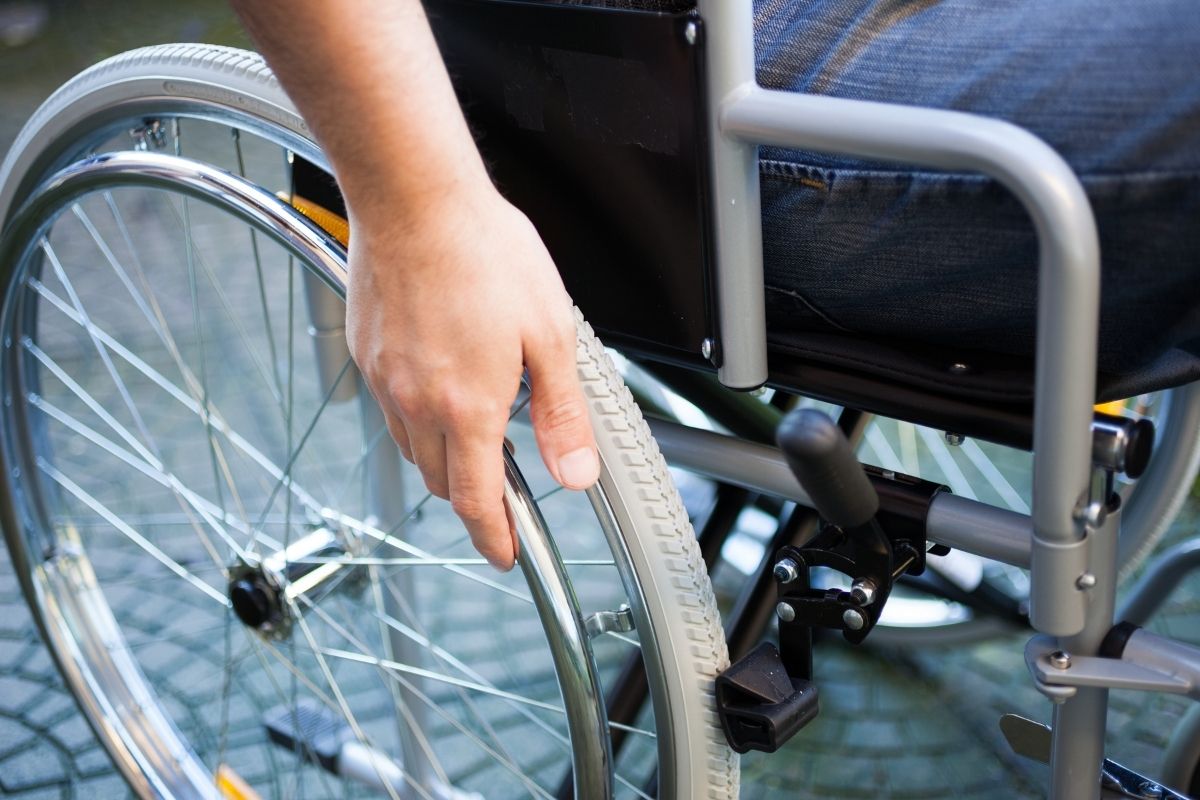
How Does Medicare Cover Durable Medical Equipment?
Medical equipment that falls under the category of durable medical equipment (DME) is specifically designed to offer therapeutic benefits to people with particular health conditions or illnesses. Typically, Medicare coverage for DME falls under Part B, though there are instances where Part A might provide coverage, especially during hospital stays.
For Medicare to cover such equipment, it needs to meet specific criteria. First, it must be designed for repeated use, hence the word “durable.” Second, its primary use must be for medical purposes within your home, although use outside the home is allowed. Lastly, the equipment must not be generally used by individuals who are not experiencing any illness or injury.
Today, we’re going to review some common pieces of durable medical equipment and the steps you’ll need to take to get Medicare to cover the cost.
Common Durable Medical Equipment Items
Durable medical equipment includes a broad range of items tailored to meet specific medical needs. Here's a list that highlights some frequently used DME items:
-
Adjustable hospital beds, walking aids like canes, walkers, crutches, and specialized chairs
-
Mobility aids, including wheelchairs and powered mobility tools
-
Nebulizers and associated medicinal solutions
-
Home oxygen apparatus and related accessories
-
Devices for managing sleep apnea, along with their necessary add-ons
-
Infusion systems, along with essential supplies
-
Equipment for monitoring blood glucose levels, including diabetes self-testing kits
-
Specific incontinence items like catheters
-
Supportive braces, including those designed for the back or knee, as covered by Medicare
It's important to understand that Medicare typically covers the basic version of the DME equipment. If you wish to add special features, you should expect to cover the additional costs yourself.
In addition, Medicare won't offer coverage to equipment exclusively designed for outdoor use, like certain motorized scooters, unless there's a proven necessity for home use. Modifications to your living space, such as the installation of ramps or grab bars, are not included in Medicare's coverage.
There are instances where the DME benefits might not cover items intended for single use, like incontinence products or disposable face masks. However, exceptions always exist, especially when these items are integral to home health care. For example, Medicare offers coverage for intermittent catheters, as well as one indwelling or Foley catheter each month. For example, male beneficiaries will receive coverage for up to 35 external catheters.
How to Get DME Covered by Medicare
Getting Medicare coverage for most DME involves a few simple steps. It's important to understand that while some DME items are available for purchase, others are only available for rent. Typically, after 13 months of renting, most equipment transitions to your ownership. However, some oxygen equipment remains on a rental basis, with no option for purchase.
Step One: Consult with Your Healthcare Provider
The DME process starts with a consultation with your physician. Medicare mandates that durable medical equipment is only eligible for coverage when it's specifically prescribed to address a particular health condition or injury.
Medicare emphasizes the importance of a documented office visit with your physician, where the necessity for DME is thoroughly discussed. When your provider prescribes the DME, it's important that their order includes the date of this consultation. The consult date must not precede the equipment ordering date by more than six months.
Step Two: Find a Medicare-Approved DME Supplier
Both Original Medicare and Medicare Advantage policies have lists of authorized DME suppliers. You’ll need to find out which suppliers your plan works with and use them to access your DME.
DME Suppliers Within Original Medicare
Across various regions nationwide, Medicare operates under a Competitive Bidding Program. Consequently, Medicare exclusively collaborates with contracted suppliers within these areas for DME provisions. Using suppliers outside this designated list may result in non-coverage. While these contracted suppliers are generally obligated to inform beneficiaries of this arrangement, it's best to proactively inquire to avoid unexpected out-of-pocket expenses.
In regions not encompassed by this program, beneficiaries have the flexibility to select from any Medicare-approved supplier.
DME Suppliers Within Medicare Advantage Networks
Medicare Advantage plans, being private alternatives to traditional Medicare, establish their own protocols regarding DME procurement. These plans might necessitate prior authorization for getting equipment and typically operate within their specialized network of DME suppliers. Additionally, certain suppliers within this network might offer discounted rates. To understand the specifics, it's recommended to consult your Medicare Advantage plan for precise details and preferred supplier information.
DME with Special Requirements
Certain DME items, given their higher costs and specific functionalities, necessitate distinct guidelines. For instance, wheelchairs present a case in point.
To qualify for a prescribed wheelchair, your physician's orders should emphasize the challenges you face navigating within your residence, even when aided by mobility aids like canes or walkers. Additionally, there should be documented difficulties in executing routine activities such as dressing or bathing. The physician's prescription should distinctly mention the consultation date and assert your capability to operate the wheelchair safely.
Power scooters also fall under this category, adhering to unique DME regulations. If your physician recommends a power scooter, it's imperative to place your order within 45 days of receiving the prescription. The directive should echo the aforementioned challenges warranting a wheelchair. However, it should further specify that while you might struggle with a manual wheelchair, a powered scooter remains a feasible and safe option for you.
It's essential to recognize that certain states might impose supplementary regulations and requisite documentation for wheelchairs and scooters. To ensure compliance, always consult with your physician and familiarize yourself with any state-specific mandates.
DME Replacement Criteria
Medicare mandates the replacement of durable medical equipment only after it has been utilized throughout its lifespan and has surpassed a minimum duration of five years. If you possess an equipment item that shows signs of wear or deterioration, liaise with your designated supplier to navigate the requisite procedures for its replacement.
Still Have Medicare Questions?
Schedule a FREE Medicare plan consultation with an agent in your neighborhood.
Privacy and Security: Your privacy and security are extremely important to us. Your personal information is protected by our Privacy Policy
LocalMedicareSpecialists.com is privately owned and operated by LMS Insurance LLC. LocalMedicareSpecialists.com is a non-government resource for those who depend on Medicare, providing Medicare information in a simple and straightforward way.
We do not offer every plan available in your area. Currently we represent 11 organizations which offer 173 products in your area. Please contact Medicare.gov, 1-800-MEDICARE, or your local State Health Insurance Program (SHIP) to get information on all of your options.
